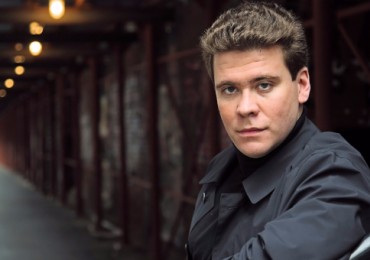Review on Birmigham concert by Denis Matsuev, Valery Gergiev and Mariinsky Orchestra on 10/12/2017

When watching world-class performances the mind tends to do one of two things. It either observes avidly in awe and wonder at the virtuosity on display or, at the optimum level, the consciousness switches off altogether and leaves the imagination to animate the musical pictures. This concert by the Mariinsky Orchestra under Valery Gergiev prompted both reactions.
The virtuosity displayed by Denis Matsuev at the piano was astounding. Sergei Prokofiev’s Piano Concerto No. 2 in G minor is a work that requires extremes. There are some short moments of subtlety and melancholic reflection, other brief moments of dance and play, both of which need strong emphasis in order to stand in stark contrast to the dominant striking forward momentum. Matsuev handled the dynamic shifts perfectly. A large part of the concerto requires a heavy hand, and at times he was pounding so hard and ferociously that the staff at Birmingham Symphony Hall would do well to check their Steinway for stress fractures. Yet every note was measured, crisp, accurate and driving. This was particularly evident in the short Scherzo where his fast and furious fingers dazzled and mesmerised in equal measure.
The Intermezzo: allegro moderato afforded Matsuev the opportunity to play and have fun with the technical challenges and mood shifts, and he certainly did not constrain himself, his digits leaping, twirling, bouncing, tickling and caressing. There were no half-measures, every nuance was expounded maximally. He went on to show how readily he could combine and communicate the sweeping Russian folk theme of the finale with its dark and sinister foreboding of revolutionary change. Matsuev maintained an intensity throughout the concerto that did not fluctuate with the changing themes or moods, and this helped keep the work together in a coherent whole.
The orchestra were rarely noticeable in their minor supporting role, which is exactly what they needed to be. However, there were occasions where they elevated the experience, particularly at the ends of the first and fourth movements. Their opportunities to shine came in the first piece in the programme, Rimsky-Korsakov’s The Golden Cockerel Suite, and in the final piece, Sergei Rachmaninov’s Symphonic Dances. In these, Valery Gergiev led us into the far reaches of our imaginations in a masterclass of conducting.
The concert began with a golden cockerel appearing instantly with its warning call, in the guise of a short but blistering trumpet fanfare. As the sonorous final note faded, low strings and free dancing woodwind took on the narrative, and the imagery of Rimsky-Korsakov’s suite came to life. This is less well known than his symphonic masterpiece Scheherazade, or even the wonderful Tale of Tsar Saltan Suite (both performed by the orchestra this week in London) but it has in common with them remarkably symbolic musical phrases and national flavours. There is no mistaking the Russian patriotism, and the folk influences in the piece. Nor can one avoid the Russian weather, beginning with Spring in the first movement at Tsar Dodon’s Palace, or the oppressive heat of battle in the second movement entitled Tsar Dodon on the Battlefield. Neither can the hand of Alexander Glazunov be ignored. Apparently he prepared the suite for the public after Rimsky-Korsakov’s death in 1908, and in the echoes of the sumptuous strings from his ballet The Seasons, I found myself wondering how much of the final preparations he actually contributed.
The soundscape of Rachmaninov’s Symphonic Dances was equally as vibrant and easy to visualise, though the themes were less folk inspired. They were, as we know to expect from Rachmaninov, highly lyrical and elegant in style. The pieces also had a great warmth to them, emanating from the strings, upon which the woodwind would often dance. One extremely beautiful passage was where the alto saxophone, played by Mark O’Brien with an exquisite tone and no vibrato, conversed first with the oboe, then the flute, and then the oboe again. This was aural characterisation and interaction at its best.
What Maestro Gergiev was able to bring out of the orchestra in both of these pieces was passion, colour and flamboyance. His style is fairly unique, with his tremolo hands and miniscule gestures. But the orchestra were watching him like hawks and were unbelievably responsive. The standard of musicianship of The Mariinsky Orchestra in this performance was second to none, and the overall sound balance was near perfect.
This was my first time seeing Denis Matsuev and The Mariinsky Orchestra and they both impressed tremendously. Together, orchestra, soloist and the master conductor Valery Gergiev were in absolute top form with a well-chosen programme of Russian music. They made for a highly memorable evening.
By Robert Gainer
*****
« back



